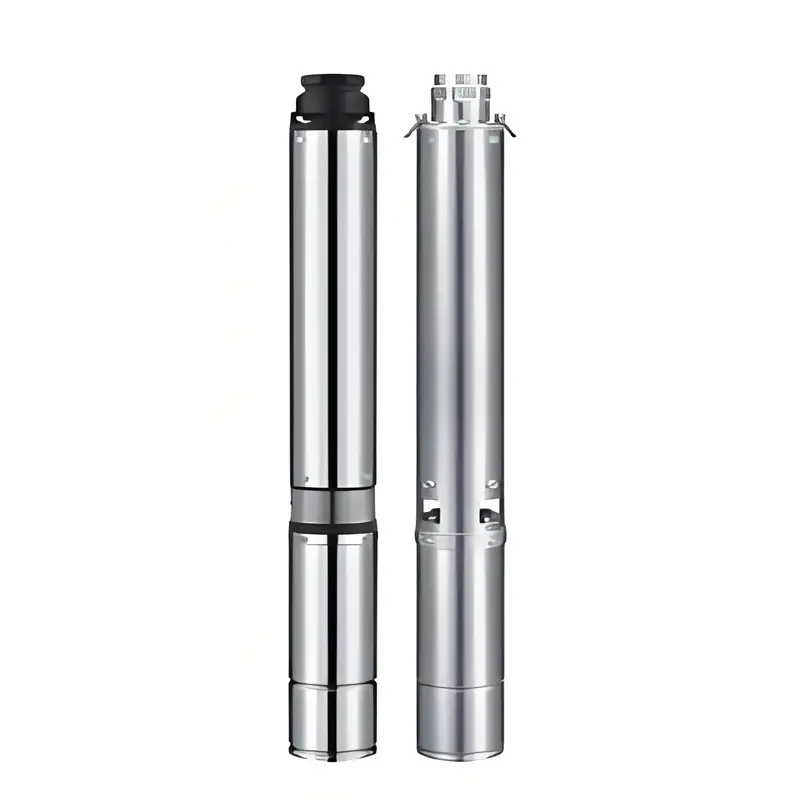What Is a Deep Well Pump? A Complete Guide to Its Types & Uses
A deep well pump is a mechanical device specifically designed to extract liquids (primarily water) from deep wells, groundwater layers, or other deep water sources. Its design is characterized by the ability to adapt to relatively great depths for water extraction, making it widely used in scenarios such as agricultural irrigation, industrial water supply, urban water supply, and groundwater monitoring.

Core Structure and Working Principle of Deep Well Pumps
The structure of a deep well pump typically includes the pump body, motor, riser pipe, transmission shaft, and other components. Its working principle relies on centrifugal force or positive displacement transfer:
- Motor drive: The motor is usually installed on the ground and connected to the downhole pump body via a transmission shaft, providing power for pumping water.
- Liquid conveying: The pump body is positioned below the downhole water surface. When the motor starts, the impeller inside the pump body rotates at high speed, generating centrifugal force to draw water into the pump before transporting it to the ground via the riser pipe.
Main Types of Deep Well Pumps
Based on differences in working principles and structures, deep well pumps can be categorized into the following types:
- Centrifugal deep well pumps: The most common type, which pumps water through the centrifugal action of the impeller. They are suitable for medium to low-depth wells (usually tens of meters deep).
- Submersible electric pumps: The motor and pump body are integrated, allowing them to work entirely submerged in water without a long transmission shaft. They are ideal for deeper wells (up to hundreds of meters deep) and are easier to install and maintain.
- Screw-type deep well pumps: These transport liquids through the meshing movement of screws and bushings, making them suitable for high-viscosity liquids or water sources containing small amounts of impurities.
Application Scenarios of Deep Well Pumps
- Agricultural irrigation: They extract groundwater for farmland irrigation, particularly in water-scarce regions or areas where surface water sources are insufficient.
- Urban water supply: They provide groundwater as a drinking water source or supplementary supply for cities and towns.
- Industrial water use: They meet the water demands of factories during production processes, such as cooling and cleaning.
- Geological exploration: They are used in projects such as groundwater monitoring, sampling, or lowering the groundwater table.
Characteristics of Deep Well Pumps
- Suitable for deep water levels: Compared with ordinary water pumps, they can operate efficiently in deep wells ranging from tens to hundreds of meters deep.
- Compact structure: Submersible electric pumps, in particular, are compact in size and save installation space.
- High efficiency and energy saving: Modern deep well pumps often feature high-efficiency motors and optimized impeller designs, leading to low energy consumption.
- Regular maintenance required: Due to their special working environment (underwater or in deep wells), regular inspections of the impeller, riser pipe, seals, and other components are necessary to prevent wear or water leakage.
In conclusion, deep well pumps are key equipment for developing and utilizing groundwater resources. Their performance directly affects water pumping efficiency and stability. When selecting one, factors such as well depth, water volume, and water quality should be comprehensively evaluated.

